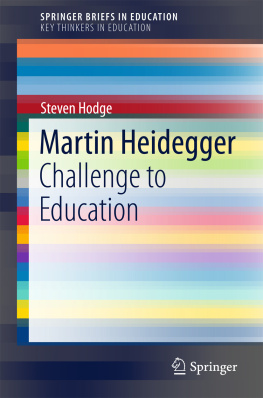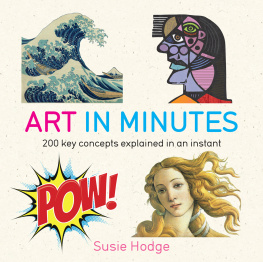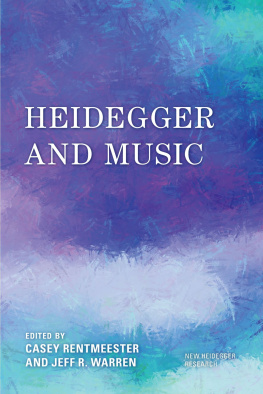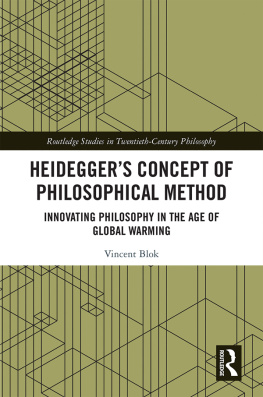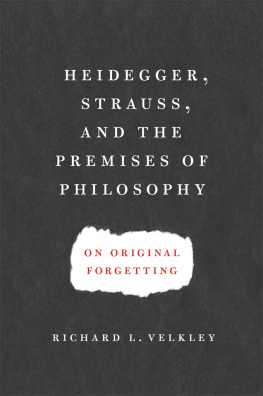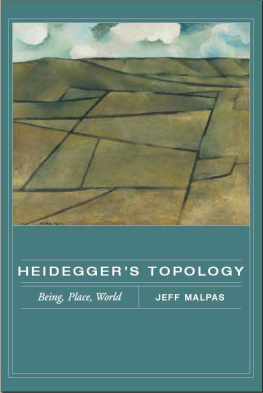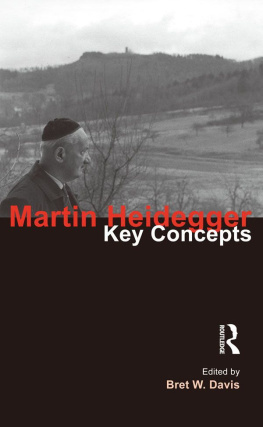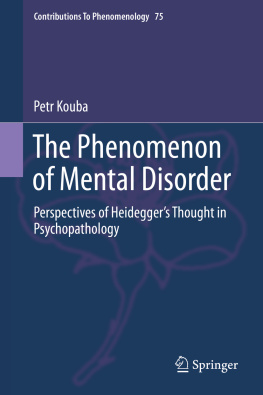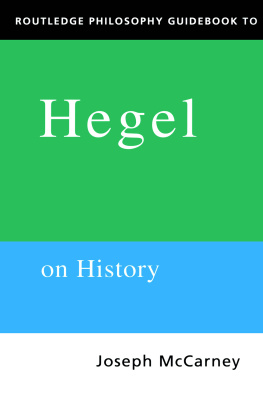1. Heideggers Life and Early Philosophy
Abstract
Martin Heidegger (18891976) was one of the intellectual giants of the 20th century. He combined an original take on contemporary philosophical movements with a revival of one of the most enduring questions of Western thought: what is Being? He led a complex life which included an early aspiration to the priesthood, membership of the Nazi party, a post-war ban on his teaching, intrigues and love affairs. His works have elicited a vast secondary literature and influenced thinkers such as Arendt, Gadamer, Sartre, Merleau-Ponty, Derrida and Foucault. In this chapter, the early part of his intellectual career is traced. His focus on the question of Being and his strategy for answering it are examined. This strategy produced a deep, original analysis of human being. Heideggers early philosophy also has a critical edge. He highlighted the way our everyday being is overwhelmed and deadened by the Theya term for the mass of social expectations regarding our modes of thinking and behaviour. Heidegger also investigated the obscuring influence of the Traditionbodies of accepted knowledge that contain authoritative answers to virtually every kind of question we may ask. Through the combined influence of the They and the Tradition, human being is entangled ready-made ways of being and thinking, unable to ask new questions, live in new ways and open a relationship with Being.
Study of Heideggers life reveals that he had undoubtedly a flawed character combined with a powerful and original intellect. He emerged from a poor background and through the avenues opened up by Catholic church-backed scholarships received an academic education and was able to gain a foothold on an academic career (Ott ).
Religious influences dominated the early part of his life and career. He accepted Catholic Church dogmaanti-modernist and authoritarianand studied the official curriculum for priests and theologians-in-training (Ott ). Scholastic philosophy drew on the system developed in ancient Greece by Aristotle. Heidegger wrestled with scholastic themes such as the nature of the souls relationship to God, the ways in which the concept of Being is intended when applied to diverse topics, and the way consciousness relates to the world. Medieval mysticism represented the experience of the holy in Heideggers estimation. Caputo explains that he was also drawn to the mystical doctrine of the human souls origin and essence in God.
Turning to a career in philosophy, Heidegger engaged with the fashionable new intellectual movements of phenomenology and hermeneutics. Through Edmund Husserls researches into the nature of consciousness, Heidegger adopted the radical principles of the phenomenological movement (the rigorous search for presuppositionless contact with reality) (Moran ).
That such an original and powerful thinker as Heidegger could come to espouse such flimsy and morally abject doctrines as those championed by the Nazis has generated a literature in its own right (e.g. Wolin ) is another writer who maintains the quality of the philosophical contributions of Heideggers work as against the ideological failings. For Young, however, Heideggers later work represents a philosophical development that builds on and beyond the early work to redefine the horizon of contemporary thought.
Later in the chapter, results from Heideggers engagement with religious, philosophical and ideological influences become clear as we turn to the main themes of Heideggers early philosophy. Our discussion will not dwell on religious and ideological elements in Heideggers work, but it is worth touching here on how they do impinge on his philosophy. In terms of the relationship between the ideological and philosophical elements, I incline to Youngs () strategy of distinguishing ideological and philosophical elements has been presented as a useful approach to accounting for Heideggers Nazism without foregoing the possibility of appreciating and benefitting from his insights. But Habermass assessment of Heideggers later philosophy is too dismissive. In contrast, Youngs appraisal strikes me as more open to the challenge posed by a mode of philosophy that moves beyond the norms of philosophical argumentation to which Habermas was committed.
Neither Habermas nor Young explicitly distinguish spirituality as an important influence on Heideggers thought, but some scholars argue that spiritual themes form a substantive part of his work. For instance, Being and Time the book that Habermas is satisfied to let stand as a singular work of philosophy is described by Caputo (, p. 329) as thoroughly interwoven with theological questions. Again, Heideggers later work which Habermas regards as dominated by ideology and feels should be approached with caution is taken by many scholars as rich in spiritual significance. Speaking of Heideggers late writings on the kind of radical thinking demanded by the question of the meaning of Being, Caputo says,
Once again a fundamental shift in Heideggers thinking took place and again with overt religious overtones. The strident antagonist of Christianity of the war years himself a sometime Protestant and a sometime very ardent Catholic had taken on a mystical air. With this latest turn Heidegger was, as he himself said, returning to his theological beginning (, p. 338).
But Caputo ().
Heideggers philosophy, then, can be considered apart from spiritual as well as ideological influences on his development. With respect to spirituality, it would appear that Heideggers work is addressed to a world that contains both very prosaic and very profound realities and asks what makes this all possible? For Heidegger, the way to pose this question is to ask what is the meaning of Being.
1.1 Early Philosophy
Despite the wide range of influences, the many twists and turns and the general complexity of the man, Heideggers work is characterised by single-mindedness and holism. His single-mindedness is demonstrated by the central position of the question of the meaning of Being in all his writings. His holism is confirmed by the fact that he constantly expanded the horizon of his understanding of Being to find the meaningfulness of life, both in the everyday world and in specialised fields of knowledge and expertise (Dreyfus ).
It has to be said that a focus on the question of the meaning of Being is a peculiar preoccupation for a modern philosopher. The typical orientation of philosophers in the early 20th century was epistemology or theory of knowledge (Dreyfus ). Thus philosophy came to have an epistemological focus rather than the more traditional ontological or metaphysical focus on being typical of pre-scientific eras. Ontology, or the philosophy of being, became the preserve of theologians and scholastic philosophers who were still in the grip of ancient and medieval assumptions about what reason can achieve.
But what did Heidegger mean or think when he referred to being? He was always quite clear about what he did not mean. In general, he stressed that big-B Being (as we find it written in many translationsa convention followed in this book) does not refer to any God-like creator or first cause, nor does it refer to the most universal or general concept. For Heidegger, a first cause, ultimate entity, or God would be another entity (a little-B being), while the most general, embracing concept of all would be entirely empty. So what does that leave? Heidegger believed that whatever it is, Being is always evident to us in some way. He says, already when we ask, what is being? we stand in an understanding of the is without being able to determine conceptually what the is means. This average and vague understanding of being is a fact (, p. 3).

